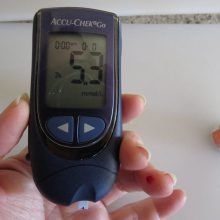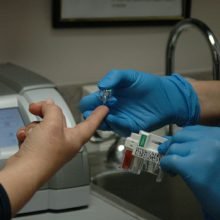Management Techniques For Diabetes
If you have recently been diagnosed with type 2 diabetes, you may be feeling overwhelmed. But the sooner you take control, the better your prognosis. There is much you need to learn about this disease. Fortunately, there is plenty of information produced by scientific studies.
Learning everything you can about diabetes and its treatment will keep you busy for awhile. But it will help you manage the disease, controlling it rather than letting it control your life. The more you take action based on this knowledge, the more likely you are to avoid further debilitation from diabetes. A great deal of suffering results from not treating diabetes, including lose of limbs.
You may being feeling self-protective and question whether it is a good idea to exercise. But moderate exercise can really help in controlling your blood sugar levels and preventing neuropathy. Ask a medical professional for advice on types of exercise that would be good for you. Make it a habit to exercise regularly. You need the increase in circulation, as well as the other benefits of exercise.
Your doctor will generally prescribe the least drastic treatments. You may need insulin injections, or you may be able to take pills. If your diabetes worsens, you may need an insulin pump to help stabilize your glucose levels. But to avoid this and other more severe treatments, work to stabilize your blood sugar through careful management of food and exercise.

Every food you eat affects your blood sugar. Some foods such as refined sugars and refined carbohydrates need to be avoided almost entirely. Stevia or agave nectar can substitute for sugar, so you can still satisfy a desire for sweetness. Find diabetic recipes for baked goods. Use whole wheat instead of white flour. Legumes such as lentils and beans fill you up, provide protein, and help stabilize your blood sugar.
In general, avoid foods that give a quick burst of energy (and therefore a spike in blood sugar), and eat foods that are digested slowly, providing a steady, lower level of energy. Avoid rich foods with high fat content. Try to eat 4 or more small meals a day. Avoid eating to excess, even when you go out to eat at a restaurant. When you do eat out, don’t think of it as a vacation from your diabetic diet. Instead, look over the menu carefully and select something that meets your needs. Don’t hesitate to tell the server about your diabetes, and ask that a dinner item be altered somewhat if necessary. Since portions tend to be large, eat just half and take the rest home to eat later.
Give your feet tender loving care: daily washings, and soakings in warm water with a little peppermint oil in it. Rub them dry gently; look for any signs of redness or soreness or skin breakdown. If there is a problem, see a doctor right away. Also, you may be told to have a doctor or nurse cut your toenails, rather than doing it yourself.
You should get a checkup from your eye doctor annually, including a check for glaucoma. As a diabetic, your chances of developing glaucoma increase.
Following these tips can help you manage your diabetes and keep it from getting worse. Be careful about diet, and your condition can improve.






